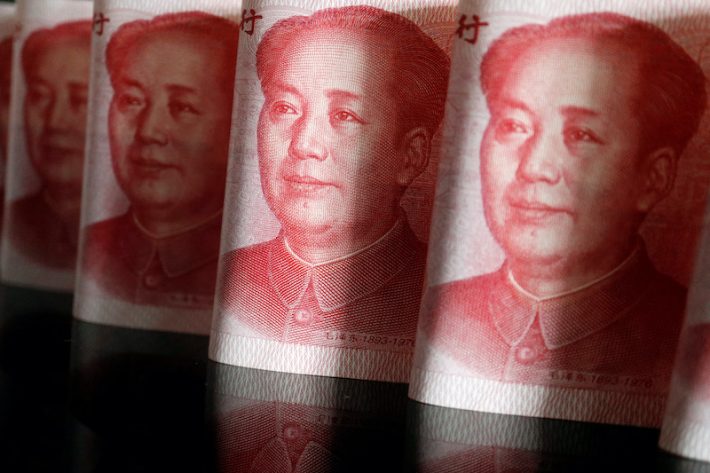China’s $715-billion hedge fund sector is facing a crisis, with tough new regulations coming into effect next month.
The new rules are already forcing some investment firms to seek fresh capital from white knights – or even shut down.
New guidelines for the fragmented industry from August 1 will impose higher asset thresholds for funds to operate, and also stricter norms for their investments and marketing.
ALSO SEE: As US Draws Up Firmer Curbs, Nvidia Plans New AI Chip For China
These rules would come after China’s regulators cracked down on computer-driven ‘quant funds’ this year as part of Beijing’s tighter supervision of the financial industry.
Zhang Kaihua, founder of Nanjing-based HuYang Private Fund Co, is selling up to 6.3% of his company to boost capital.
“Higher compliance rules are making operations more and more costly,” said Zhang, who is luring new partners to keep the business afloat. “We’re struggling as a small asset manager.”
The new rules require a fund to have a minimum 10 million yuan ($1.38 million) to be set up, and assets of at least 5 million yuan to operate, posing a challenge to many managers of tailor-made, single-account products.
Pitches to prospective investors via live-streaming and other public platforms are also being disallowed.
Hedge funds in China refer to loosely regulated private funds that raise money from institutions or wealthy individuals.
Hundreds of firms shut already
Nearly 300 such funds out of the more than 8,000 in China have already terminated business so far this year, data from industry body Asset Management Association of China (AMAC) showed, as a flagging stock market, sluggish economy and weak consumer sentiment take their toll.
The upcoming rules were the final straw for some.
Chun Xu, fund manager at JSVest Shanghai Ltd, shut his fund house earlier this year, believing he does not stand a chance in an environment where helping the rich get wealthier is frowned upon. Xu is contemplating moving into the coffee and tea retailing business.
Tighter rules are “sapping market liquidity being provided by hedge funds,” Xu said. “Regulators are prioritising political correctness over market efficiency.”
AMAC, which is supervised by the China Securities Regulatory Commission (CSRC), said the new rules are aimed at promoting the healthy development of a crowded industry where some players are too small and loosely managed.
Some funds “naturally shut down due to their lack of investment capabilities, low level of compliance and risk control, which is a normal reflection of survival of the fittest,” AMAC said in a statement to Reuters, vowing continued support to the broad private fund sector.
Leaner and cleaner financial sector wanted
The tightening of regulations on China’s 5.2 trillion yuan ($715 billion) hedge fund sector comes as President Xi Jinping seeks to foster a leaner and cleaner financial industry able to support his strategic goals of tech supremacy and common prosperity.
“The industry is experiencing its darkest hour,” said Hu Bo, head of investment at Shanghai-based hedge fund manager Professional Fund. “From investment to fundraising and marketing, rules are being tightened.”
The new guidelines also cap a fund’s exposure to a single asset at 25%, potentially upending many funds’ business models of making outsized bets on certain stocks, fund managers say.
A further blow to the industry would come if curbs were to be imposed on sales of hedge funds via banks – a key distribution channel for some asset managers – to prevent major losses for bank customers.
China’s banking regulator launched a consultation in early June, seeking feedback on whether the channel should remain open for hedge funds, two sources with direct knowledge told Reuters.
China’s National Financial Regulatory Administration did not reply to Reuters’ request for comment.
Billionaires ‘not wanted’
Some predict ever-tighter rules pose a threat to the existence of thousands of hedge funds, an overwhelming majority of whom are small-sized.
More than 80% of hedge fund companies in China manage less than 500 million yuan, according to AMAC data. Only 91 companies, or 1.1% of the total, manage more than 10 billion yuan.
China’s hedge fund market has also attracted global players, including Bridgewater, Winton, Man Group and Two Sigma, who are unlikely to be impacted by the new rules due to their size, deep pockets and strict internal controls.
The government does not welcome “China’s Dalio or Soros”, said Huang Wei, founder of Miniu Investment, referring to billionaire US hedge fund manager Ray Dalio, and financier George Soros.
But some big hedge fund managers said the tighter rules are good for the industry.
“If you have a fund that cannot maintain 5 million yuan in size, I don’t think the business will survive,” said Liam Zhou, founder of Shanghai-based Minority Asset Management Co, which manages more than 6 billion yuan.
- Reuters with additional editing by Jim Pollard
























